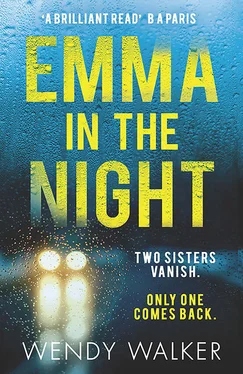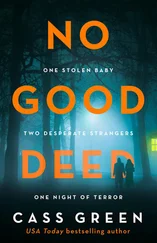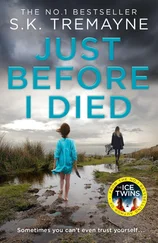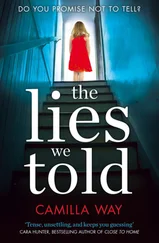Emma had worn the necklace every day. Friends confirmed it. Her father confirmed it. The school confirmed it. There was no doubt that Judy Martin had gone back to the store and bought the necklace for Emma. Not Cass.
The shrink weighed in. “Maybe the clerk was mistaken, Abby.”
That’s what Leo had thought. And that’s what the department had said when they dismissed her theory about the family after the evidence came up with nothing solid—and after the family had started to push back with lawyers and tears in front of cameras.
But Abby knew the truth. This is what they do, people like Judy Martin. They are masterful in their deception. They are relentless in their manipulation. Abby had not only studied these things; she had lived them, too.
Verse number five.
The shrink—“Was she ever diagnosed? Your mother?”
No. Never. And Abby had been the only member of the family to know there was something that needed to be diagnosed. Not her father. Not her stepmother. And not even her sister, Meg, who to this day still thought of their mother as “overindulgent” and “free-spirited.”
The shrink—“Do you think that’s why you went into this field? Why you wrote your thesis on the cycle of narcissism in families?”
And what did that prove? It had not been a conscious decision, studying psychology. But when Abby had first read about narcissism and narcissistic personality disorder, the adrenaline had rushed in so hard and fast, it sent her to her knees. Right there in the library at Yale. Right there in front of her roommate, who thought she’d had a stroke. Abby had wanted to curl up on the floor and swim in it—the understanding that was seeping from the words in that textbook.
It was an illness that everyone thought they understood, assigning the label “narcissist” to every girl who looked twice in a mirror and every guy who never called. Books and films labeled every selfish character a “narcissist,” but then there would be redemption, reconciliation, seeing the light. Few people really knew what this illness was. What it really looked like. There was never redemption. Or reconciliation. There was no light to be seen. It was the combination of these things—misperception and overuse—that made this illness so dangerous.
Verse number six.
The shrink—“Let’s play it out. Let’s say they did push harder—went to court to get orders for psych evals, battled the local media, which was squarely behind the grieving parents. Let’s say they found that Judy had some kind of personality disorder. And maybe Owen Tanner had depression. And maybe Jonathan Martin was an alcoholic and his son ADHD. On and on—let’s just say they found the mother lode of psychiatric conditions. That does not mean they would have found the girls.”
And there it was—the lifeboat. Abby had climbed into it, and it had saved her. Anytime she fell out, when she thought about that necklace, the third alarm bell that had convinced her beyond doubt that the family was involved in the girls’ disappearance—she would climb back into that boat and keep herself from drowning.
“It may not have saved them.”
It may not have saved them.
This verse, this lifeboat, had saved her. But it had not brought her one moment of peace.
As she peeled out of her driveway, the sun’s light piercing her eyes, she turned to the last page of the Bible, the one verse that had been left blank. The one that called out for words. For answers. And she couldn’t stop herself from hoping that now, finally, it would be written.
Конец ознакомительного фрагмента.
Текст предоставлен ООО «ЛитРес».
Прочитайте эту книгу целиком, купив полную легальную версию на ЛитРес.
Безопасно оплатить книгу можно банковской картой Visa, MasterCard, Maestro, со счета мобильного телефона, с платежного терминала, в салоне МТС или Связной, через PayPal, WebMoney, Яндекс.Деньги, QIWI Кошелек, бонусными картами или другим удобным Вам способом.












